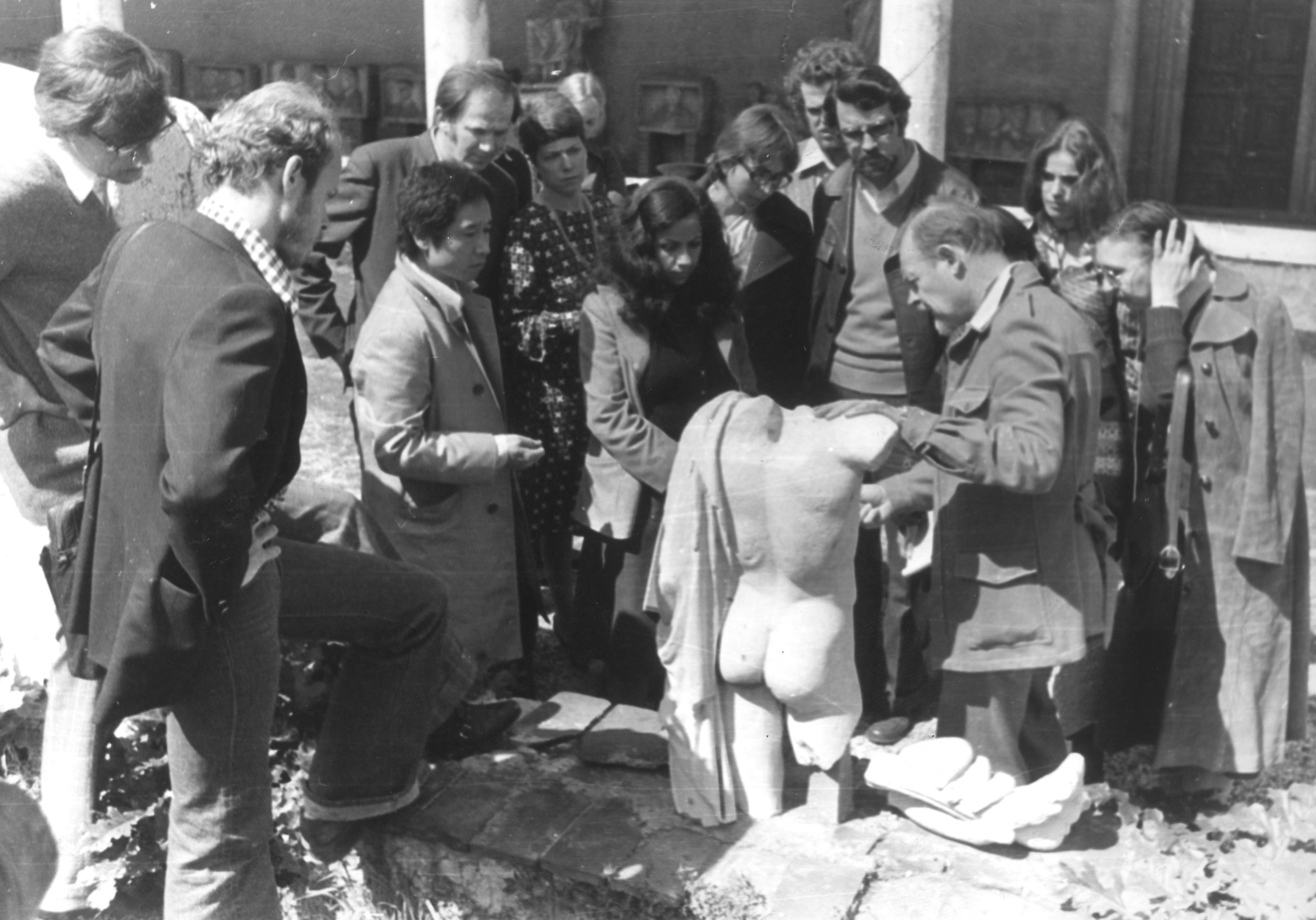This image captures ICCROM course participants at a site visit in Rome in 1976, during the third edition of the International Course on Scientific Principles of Conservation (SPC), organized by ICCROM and held in Rome.
Launched by Giorgio Torraca in 1974, the SPC course evolved from its original title, Course on the Fundamental Principles of Conservation, to become the Course on Conservation Science, before settling on Scientific Principles of Conservation in 1981.
Designed as a materials science activity, the course included general science introductions followed by weekly sessions focused on specific materials— wood, metals, stone, paper, textiles, ceramics, plastics and more— paired with hands-on lab activities to deepen understanding.
The SPC course aimed to make conservation knowledge accessible to all involved in restoration, marking a significant shift in the field. By educating conservators, architects, historians, and scientists about material structures and their durability problems, the course sought to minimize future damage to the cultural heritage these professionals dealt with. Moreover, it encouraged interdisciplinary collaboration and the development of a common language in subsequent inter-disciplinary work.
To support this innovative approach, ICCROM partnered with specialized institutions to create essential teaching resources, filling a gap in conservation education materials. To facilitate communication among the diverse course participants coming from all around the world, ICCROM produced didactic slides and technical cards in multiple languages covering topics like biology, biodeterioration, metals, paper, wood, climate control in museums and museum security, stone and mural painting, all of which are preserved in the ICCROM Archives and remain a testament to this groundbreaking initiative.
Additionally, the research projects included creating bibliographies on relevant subjects and collecting material samples, most of which are part of the Mora Samples Archive. The SPC courses were offered in both English and French, with consecutive interpretation to enhance participation. This approach enabled ICCROM to ensure inclusive, global participation, setting a new standard in conservation training that continues to shape the field today.
Documentation on the Scientific Principles of Conservation Course from 1974 to 1999 is available in ICCROM Archives.
Reference: Jokilehto, Jukka, ICCROM and the Conservation of Cultural Heritage: A History of the Organization’s first 50 years, ICCROM, Rome, 2016.

